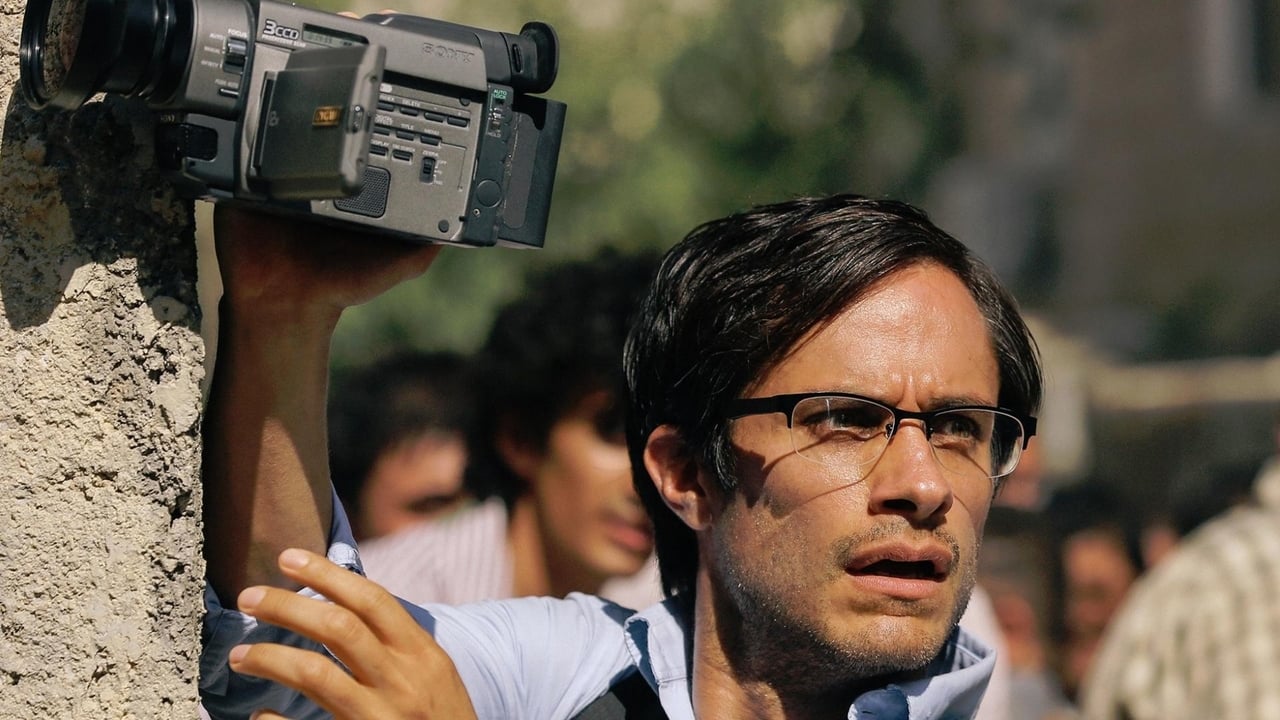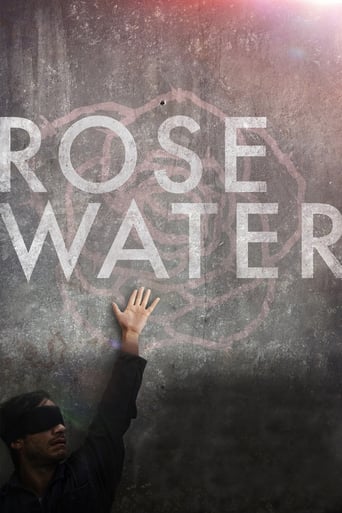Boobirt
Stylish but barely mediocre overall
ChanFamous
I wanted to like it more than I actually did... But much of the humor totally escaped me and I walked out only mildly impressed.
Bessie Smyth
Great story, amazing characters, superb action, enthralling cinematography. Yes, this is something I am glad I spent money on.
Aneesa Wardle
The story, direction, characters, and writing/dialogue is akin to taking a tranquilizer shot to the neck, but everything else was so well done.
Paul Creeden
I am pleasantly surprised when I find a well written film which relies on acting, enhanced by subtle art direction. So I was absorbed in this film from its beginning. The relationships between Maziar, his mother, his sister, his father, his Iranian peers and his persecutors are intertwined beautifully.Gael Garcia Bernal is probably one of a handful of international stars who could light up this story with consistently excellent acting. Kim Bodnia and Haluk Bilinger are also part of that group. The cast carries the storyline which is rather uncomplicated and well worn. The political, cultural and social issues for Maziar Bahari are not. Bernal's interpretation of the tortured and isolated journalist is painfully realistic. It is not the over-the-top Hollywood version of blood, nudity and brutality. This sets this film apart.I came away from the interchanges between Bahari and Rosewater with a better understanding of the repressed sexuality in theocratic Iran. Its patriarchy is twisted by its own harsh theology. The relationships between Bahari, his father and Rosewater could represent the core struggle between Iran's past and aspirations for its future. This is definitely a thinking person's film.
bob the moo
Many years ago an Iranian journalist called Maziar Bahari was interviewed by Jason Jones as part of a bit for the Daily Show. When that same journalist was later arrested and held for supposedly being part in a Western-led coordination of protests against the Government, this section of the show was a part of the evidence used against him, since it appeared to show him meeting with a spy. As a viewer of the Daily Show, the repeated mentions of the film made me interested to see it – not to mention that the time away from the show for Stewart already had the bonus of helping John Oliver get his own show over on HBO. Anyway, the story, and the chance to see the outcome of this period away for Stewart, made me interested to see it when it finally reached the UK or a limited release.The film opens with Bahari's arrest, and then flashed back to the events in Iran that led up to this, including the aforementioned interview. As a structure it is interesting because it does fill out the events at the time, and also some of the history of the character's family (which also serves as a way of accessing the recent history of Iran in some small ways). In the telling there are a few rather clumsy devices in there, and also at times a strange mix of drama and humor; not all of it works particularly well, and the second half of the film specifically seems a bit too earnest and straight in its telling. The torture and detainment toys with showing the horror, and also showing the boredom, fear, and longing, but all of these things are played equally and as a result it seems a bit too "normal" in terms of delivery. As the film progressed the more it became about events, and when the detainment is continuing, there are not so many "events" to engage, and surprisingly I found the film a little padded and lacking in edge and emphasis in the second half.The use of foreign actors to play Iranians has been mentioned, but generally whatever their nationality the cast play the roles well within the confines of Stewart's direction. Garcia Bernal is a good presence in the lead role; likewise Bodnia works well in the second half – although neither really get to make a huge impact due to the slight flat or sincere tone of the film. Supporting turns are solid from Aghdashloo, Leonidas, Bilginer and others – albeit again, some of them are rather hampered by what the film is doing. Technically the film looks good, and has some good shots, but it does consistently lack an impact – particularly in the second half (which is really where it should have enabled some great scenes between Bodnia and Bernal).It is an interesting film, but not a wholly successful one. The first half is event driven and engages as it tells a personal story with links to a much bigger one, but the whole second half of the film lacks impact and emphasis – feeling a little bit too earnest and surprisingly lacking in a clear voice as to what it is telling.
Steve Pulaski
Give journalist and satirist Jon Stewart credit in the regard that, while he hosts a satirical news program on Comedy Central, he doesn't stay confined to the bubble of his network. With his directorial debut Rosewater, Stewart branches out and acknowledges the hugely topical issue of international journalists covering stories in places where uprisings are ongoing and are arrested, interrogated, tortured, and often killed for simply bearing witness to certain public events. It's a frightening reality, and Rosewater's theatrical release came around the time when numerous beheadings of journalists by the Islamic State were hitting mainstream Television, with front-page news basically justifying the existence of this particular film.The film recalls the true story of Maziar Bahari, an Iranian journalist who was arrested and interrogated whilst covering the 2009 Iranian election. The wonderful character actor Gael García Bernal plays Bahari, an idealistic young journalist who travels to Iran, leaving behind a newly pregnant wife. Bahari meets several young Iranian radicals, who are supporting the progressive candidate Mir-Hossein Mousavi over the controversial, incumbent dictator Mahmoud Ahmadinejad. He carries his camera throughout the land, and captures enormous, violent protests when Ahmadinejad wins the presidency by more than half the vote.Bahari is eventually arrested and mistaken for being a spy, on account of a satirical American Television program he did (where Jon Stewart's personal side of the story comes into play, as Bahari's real-life captivity was based off his appearance on an episode of Stewart's program The Daily Show). As a result, he is kept in solitary confinement, blindfolded and interrogated by a vicious man (Kim Bodnia) he only identifies by the smell of rosewater on his clothes.The captivity scenes are intriguing because of how Stewart confines us inside the four walls of Bahari's cold cell, rarely letting us peek at the outside world. Films that involve trapping lead characters should almost always do everything they can to keep us inside the room with them, as it's a tactic that allows for unblinking voyeurism into the character's situation and makes us feel just as trapped as he or she is. In this case, Stewart is smart to keep us in solitary confinement along with Bahari, only venturing out to show momentary reactions of family and news reports of his captivity once the information hits the mainstream airwaves.Stewart's directing, however, is largely uncharacteristic of anything I can immediately note, aside from a few intriguing unsteady shots. He doesn't adopt any kind of artful style during the entire film, which isn't a huge issue, and keeps every aesthetic relatively muted or on a basic level, ostensibly not to detract from the story, which Stewart clearly wants to be told. Bernal, once again, does a wonderful job at portraying subtle traits that make up an entire character; watch how Bernal's Bahari communicates largely in gestures and kind mannerisms, even to his captors. This was evidently something that wasn't explicitly stated in the screenplay, but something Bernal decided to carry out through his body language and his overall attitude throughout the film, making for a character that is instantly likable and a complete gentleman throughout.As stated, the timeliness of Rosewater really couldn't have been better. The safety and overall welfare of international journalists is an issue that deserves attention, and, as shown from this particular film, the repercussions of harm's way can be brutal (or even more brutal than show here). With that said, Stewart does his best not to make Rosewater emotionally manipulative, though he somewhat does during the later scenes involving Bahari's wife and the circulation of his captivity. Nonetheless, there's a lot going on here that warrants attention, and even if you separate the project from the name behind it, this is still a film well worth seeing, not only for its topical nature, but for Bernal's performance.Starring: Gael García Bernal, Kim Bodnia, and Shohreh Aghdashloo. Directed by: Jon Stewart.
gradyharp
The book "Then They Came for Me: A Family's Story of Love, Captivity, and Survival" by Maziar Bahari and Aimee Molloy relates a true incident based on the imprisonment by the Iranian government of journalist Bahari who made an off hand remark against the President of Iran on The Daily Show and was considered to be a spy when he returns to Iran to cover the elections in 2009 and captures videotapes of the uprisings. The very keen screenplay was written by Jon Stewart who also directs.Gael García Bernal is excellent as Maziar Bahari as is Kim Bodnia as his interrogator Javadi (called Rosewater because of the cologne he wears that is the only identifying aspect the constantly blindfolded Bahari can recognize). The elections are between incumbent Mahmoud Ahmadinejad and Mir-Hossein Mousavi and the friction and devastation of the Tehran following Ahmadinejad's narrow victory and it is this point that the film heightens and informs us of the fragile state of affairs in Iran. The supporting cast is quite fine – Dmitri Leonidas, Shohreh Aghdashloo and others. This is a very well made film that is part docudrama and part fictionalized history and Jon Stewart impresses as a director. Grady Harp, April 15

